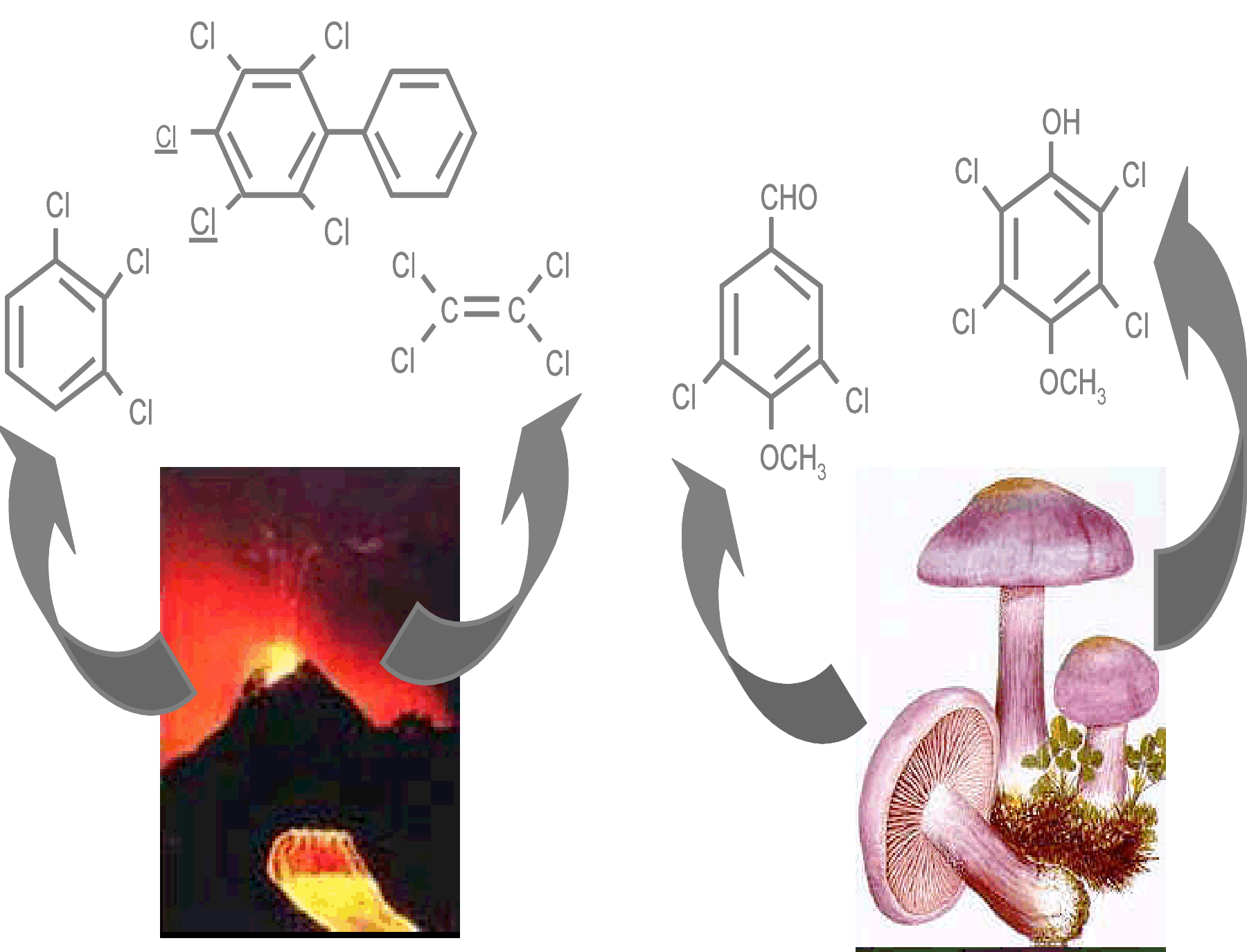|
|
Biology of Methanogenesis |
Department of Marine Biotechnology UMBC - Institute of Marine & Environmental Technology
The Global Chlorine Cycle

Halogenated organic compounds have greatly
benefited human societies around the world.
A cost of this benefit has been the widespread contamination of the
environment with chlorinated compounds, which has raised considerable concern
for the health of humans and ecosystems.
Until recently it was thought that most of the halogenated organics in
the environment were due to anthropogenic pollution.
However, it is now understood that thousands of halogenated organic
molecules are naturally produced and that hundreds of these are of biogenic
origin. The transformation of
these compounds may be part of a biogeochemical cycling of chlorine. This
project is part of a collaborative effort with collaborators at the
Medical University of South Carolina to understand how halogenation and
dehalogenation may link disparate groups of microorganisms such as aerobic
fungi and anaerobic dehalorespiring bacteria.
Basidiomycete fungi produce a variety of chlorinated organic compounds
as secondary metabolites. Some
anaerobic bacteria are known to couple reductive dehalogenation to the
conservation of energy in a process called dehalorespiration.
How anaerobic bacteria have evolved the ability to dehalorespire is an
intriguing and yet unanswered question. We
hypothesize that dehalorespiring bacteria are physiologically linked to the
biosynthesis of fungal organochlorides as part of a global chlorine cycling
process.
The overall objectives are to identify which microorganisms
dehalorespire fungal metabolites and to confirm their role in the
dechlororespiration process. The
results of these studies will provide a practical framework to evaluate the
biodiversity and biocomplexity associated with organochloride cycling in the
environment.
 Collaborators
Collaborators
Hal D. May,
Ph.D., Medical University of South Carolina
G. Patrick Meier, Ph.D.,
Washington State University
 Project Team
Project Team
Joy Watts,
Ph.D.
 Related Publications and Abstracts
Related Publications and Abstracts
Milliken,
C.E., G. P. Meier, K. R. Sowers, and H. D. May.
2004. Microbial anaerobic demethylation and dechlorination of
chlorinated hydroquinone metabolites synthesized by basidiomycete fungi.
Appl. Environ. Microbiol. 70:
385-392.
Milliken,
C.E., G. P. Meier, J. E. M. Watts, K. R. Sowers, and H. D. May.
2004. Chlorophenol
production by anaerobic microorganisms: transformation of a biogenic
chlorinated hydroquinone metabolite. Appl.
Environ. Microbiol., in press.
Milliken, C.E., G.P. Meier, J. E. M. Watts, K.R. Sowers, and H.D. May. 2003. Anaerobic biodegradation of chlorinated hydroquinone metabolites produced by basidiomycete fungi. Abstr. 103rd Ann. Mtg. Amer. Soc. Microbiol., Washington, DC.
Wu, Q., G.P. Meier, K.R. Sowers, and H.D. May. 2002. Reductive dechlorination of polychlorinated benzenes by Bacterium DF-1, a polychlorinated biphenyl-dechlorinating microorganism. Environ. Sci. & Technol. 36(15):3290-4.
Wu, Q., Watts, J.E.M., K.R. Sowers and H.D. May, C.R. Milliken, G. Miller, Q. Wu, L. Cutter, G.P. Meier, J.E.M. Watts, K.R. Sowers. 2002. PDB dechlorinating bacteria and the halogen cycle”. Abstr No. 570. 54th Southeast Regional Meeting of the American Chemical Society, Charleston, SC. Nov. 13- 16.
May,
H.D., C.E. Milliken, G. Miller, Q. Wu, L.A. Cutter, G.P. Meier, J.E.M. Watts,
and K.R. Sowers.
2002. PCB-Dechlorinating
Bacteria and the Halogen Cycle.
Southeastern
Branch of the Amercian Society of
Microbiology Annual Meeting, Gainsville, Florida.
November 7-9.
Harold
D. May and Kevin R. Sowers. 2001.
Polychlorinated Biphenyls (PCBs) and Fungal Organochlorides as
Electron Acceptors for the Growth of PCB-Dechlorinating Bacteria.
Ninth International Symposium on Microbial Ecology, Amsterdam.
Funded by
